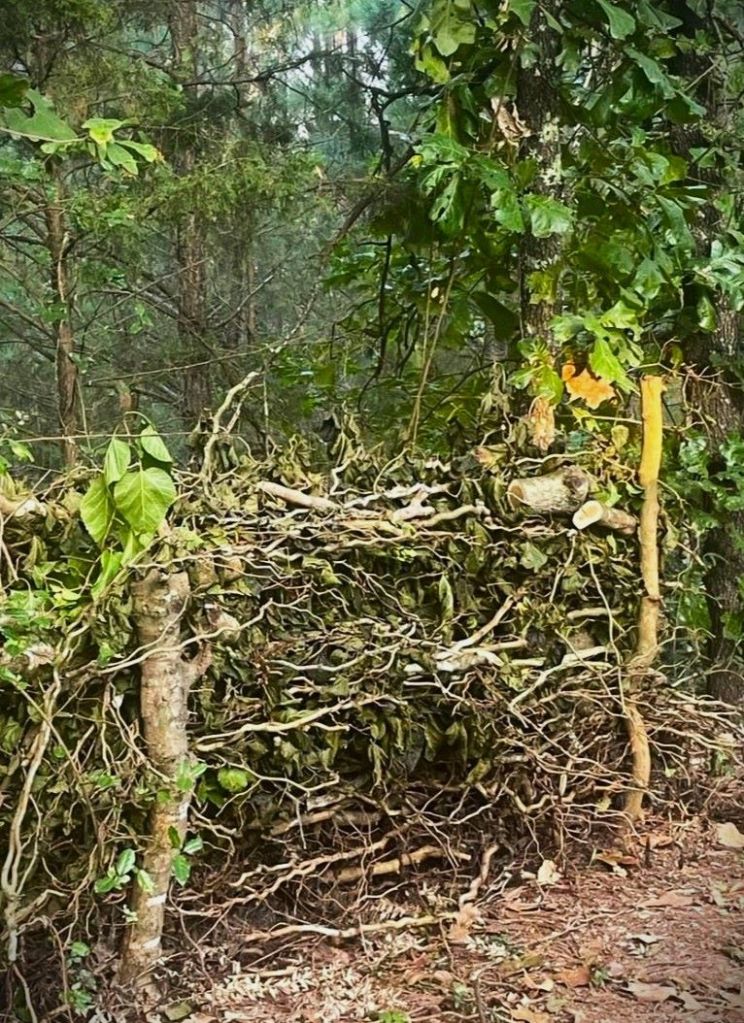Forget the bags – reuse garden debris and raise wildlife
Published 8:42 am Thursday, January 4, 2024
By Felder Rushing
Gardening Columnist
Time to make up for lost time, while being responsible.
Last year’s weather brought good gardeners to their knees, digging and pulling dead plants. Meanwhile, with the ground too dry and hard to pull anything easily, the weeds just kept on trucking. But we have a good opportunity now, during decent midwinter days when the soil has been loosened by rain, and when yellow jackets are less likely to challenge our presence.
It still won’t be easy. I recently learned an archaic word from the 1700s: aberuncate, which means to eradicate by pulling up by the roots. It’s a good word because where “weeding” sounds leisurely, aberuncate implies once and for all, after a bit of struggle with a good pair of gloves or a pry bar.
When Homer spoke of a bulb even the gods couldn’t pull out of the ground, I’m pretty sure he knew about the woody rhizome under every smilax vine, errant bits of poison ivy and blackberry, and waist-high oak seedlings tangled with azaleas.
It was a major twice-yearly effort for my partner and me to clean up the worst of the tree seedlings, errant nandina, and hard-to-pull Asiatic jasmine, Virginia creeper, and thorny smilax, all which snaked under decks and wrapped up plants halfway across the yard. We sometimes wore out tarps hauling debris. But once we got the worst out of the ground, it became routine to yank new weeds before they get too firmly rooted and toss them onto an easy-to-haul pile.
Few of us still have a acrid-smelling burn pile like when I was growing up, where we bonfired fallen limbs and other garden debris. We gradually got away from that when plastic bags got cheap, by adding it to regular garbage pickups.
Yet not everyone thinks it is okay to pile stuff in bags on the curb to be hauled away; in fact, in England, no such system has ever been in place; everyone simply assumes responsibility through compost piles and “dead hedges” where logs, limbs, and leaves are neatly laid along property lines or between trees. Which is what I do.
While excess leaves get raked or blown under shrubs or into my compost pile to become soil enriching compost, fallen branches and other large debris are now relegated to a dead-hedge I started some years ago against a back fence.
Because it is fronted with branches lined narrowly between posts and other stuff tossed behind, the looser debris is hidden, and the whole thing actually fades visually; few folks even notice it. I’m tempted to put up a sign, a badge of honor proudly proclaiming that I don’t needlessly bag and dispatch elsewhere; that I reuse garden debris and raise wildlife.
There is even a word for this: Recology.
Now, not only is it easier to haul stuff as needed but also the debris slowly composts into great soil for planting shrubs later. Plus, it should go without saying that this is ecologically sensible. It provides crucial urban habitat for native pollinator bees and other wildlife (can’t have fireflies without a leafy habitat for their larvae).
This approach is surprisingly easy and garden-good. Like picking up dirty clothes, or washing dishes, it is a simple discipline, a “one bite at a time” system of weeding what I see, hopefully when I first notice it. And having a convenient place to pile the debris. No more Herculean effort, waiting for a better time, or filling and dragging leaf bags for trash day.
And, not to brag, but I think my dedicated debris area, my dead-hedge brimming with unseen wildlife, is cool.
Felder Rushing is a Mississippi author, columnist, and host of the “Gestalt Gardener” on MPB Think Radio. Email gardening questions to rushingfelder@yahoo.com.






